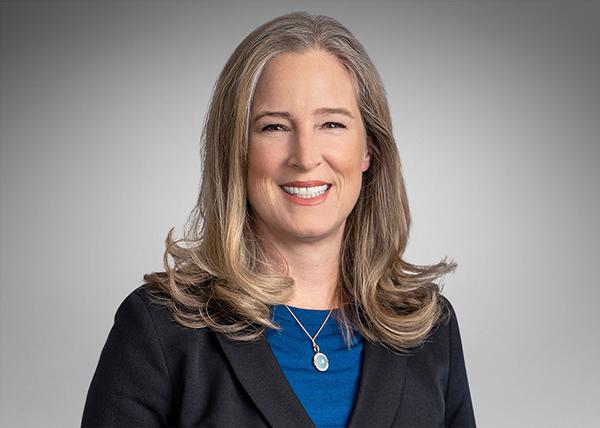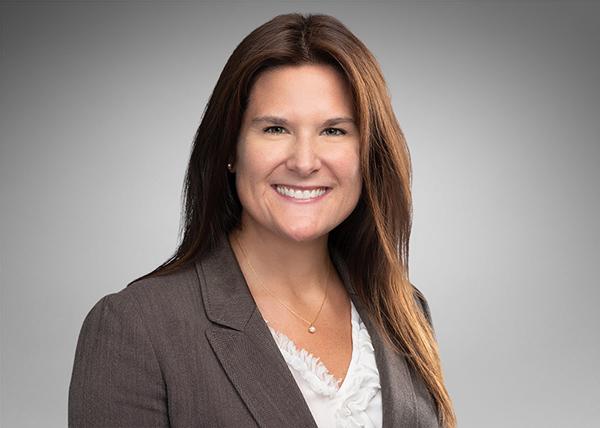There were several notable developments in the fourth quarter of 2021 affecting class actions. The U.S. Supreme Court agreed to hear two cases implicating enforcement of arbitration agreements. The Second Circuit reconsidered a standing opinion in the wake of the Supreme Court’s Ramirez decision. Two courts of appeals affirmed denials of class certification in cases predicated on form contracts, and Fifth Circuit panels decided important procedural issues in Rule 23(f) appeals. The Ninth Circuit again narrowly interpreted “public injunctive relief” under the McGill rule and issued significant decisions on class action settlement approvals. The UK Supreme Court declined an invitation to dramatically expand that country’s collective action regime, leaving the door ajar for plaintiffs to try again in the future.
1. U.S. Supreme Court to Consider Two Cases that Could Impact Courts’ Enforcement of Arbitration Clauses.
The Supreme Court has agreed to hear a case that may make it easier for companies to be found to have waived arbitration requirements in their contracts. Morgan v. Sundance, Inc. gives the Court an opportunity to resolve a circuit split over whether a party can be deemed to have waived its right to compel arbitration if the party opposing arbitration cannot demonstrate prejudice as a result of the activity allegedly constituting the waiver. The Eighth Circuit reversed a district court’s denial of an arbitration motion, holding that the plaintiff did not make the necessary showing of prejudice. Morgan v. Sundance, Inc., 992 F.3d 711 (8th Cir. 2021). But one panel member dissented, pointing to a circuit split on whether any showing of prejudice is required, and arguing that time and money wasted by the plaintiff in defending against a motion to transfer and engaging in mediation should have been enough to satisfy the Eighth Circuit’s “modest prejudice requirement.” The Supreme Court has granted certiorari to address the applicable standard.
The Supreme Court will also decide in Viking River Cruises, Inc. v. Moriana whether the Federal Arbitration Act (FAA) preempts California’s Iskanian rule, which bars enforcement of arbitration agreements in cases brought under California’s Private Attorneys General Act (PAGA). In Iskanian v. CLS Transportation Los Angeles LLC, 59 Cal. 4th 348 (2014), the California Supreme Court held that an arbitration agreement could not be enforced in a PAGA action, reasoning that such actions are outside the scope of the FAA because they are representative actions brought on behalf of the state. Iskanian’s validity has been called into question since the Supreme Court’s 2018 decision in Epic Systems Corp. v. Lewis, 138 S. Ct. 1612 (2019).
Both of these cases are likely be argued in the spring, with decisions by the end of June.
2. Second Circuit Reconsiders Mortgagor Standing Decision in Light of Ramirez.
The ripples from the Supreme Court’s Article III standing decision in TransUnion LLC v. Ramirez, 141 S. Ct. 2190 (2021) are already being felt in the Second Circuit, which issued an opinion superseding a standing decision made prior to Ramirez. In Maddox v. Bank of New York Mellon Tr. Co., N.A., 19 F.4th 58 (2d Cir. 2021), the Second Circuit considered whether mortgagors had standing to pursue statutory claims based on a bank’s failure to timely record their satisfaction of their mortgages in violation of state law. The panel had previously held that the New York statutes at issue were “substantive” statutes, and mere violations of those statutes were enough to establish a concrete, intangible harm required to establish standing. But on rehearing, the same panel recognized that after Ramirez it makes no difference whether a statute is “substantive” or “procedural”; the relevant inquiry for deciding standing in the case was whether the mortgagors suffered a concrete harm because of the statutory violation. The panel determined that mortgagors had not alleged concrete harms, but recognized they could pursue their claims in state court, which is not bound by federal standing requirements.
3. Certification of Class Claims Based on Form Contracts No Longer Guaranteed.
Although plaintiffs often assume that breach-of-contract claims arising out of form agreements are readily susceptible to class certification, two recent appellate decisions cast doubt on that thinking. The First Circuit affirmed denial of class certification of claims arising from an annuity certificate, agreeing with the district court that common issues did not predominate over individual ones when extrinsic evidence was necessary to interpret the contracts under New York law. See Aronstein v. Mass. Mut. Life Ins. Co., 15 F.4th 527 (1st Cir. 2021). The Ninth Circuit similarly affirmed denial of class certification of claims arising from a financing agreement on predominance grounds, holding plaintiffs could not establish actual reliance on written contract terms on a class-wide basis. See Woolley v. Ygrene Energy Fund, Inc., 2021 WL 4690971 (9th Cir. Oct. 7, 2021).
4. Ninth Circuit Continues to Narrowly Interpret “Public Injunctive Relief” under California's McGill Rule.
The Ninth Circuit has continued to chip away at California’s McGill rule, which bars the enforcement of arbitration provisions that waive a plaintiff’s right to seek public injunctive relief in any forum. In Cottrell v. AT&T Inc., 2021 WL 4963246 (9th Cir. Oct. 26, 2021), the court extended its earlier decision in Hodges v. Comcast Cable Commc’ns, LLC, -- F.4th --, 2021 WL 6110309 (9th Cir. Sept. 10, 2021), to hold that the injunctive relief sought by plaintiff—practices that would prevent AT&T from improperly charging accounts in the future—would benefit only AT&T customers. Because this relief would not be “for the benefit of the general public” under Hodges, the lawsuit did not seek public injunctive relief, and the Ninth Circuit reversed the district court’s denial of defendant’s motion to compel arbitration. Hodges and Cottrell therefore provide a clear roadmap for defendants seeking to overcome most McGill challenges to arbitration agreements.
5. Divided Fifth Circuit Panels Expand Procedural Protections Available to Defendants in Rule 23(f) Appeals.
The Fifth Circuit issued two separate opinions deciding procedural issues related to Rule 23(f) appeals of class certification that provide additional protections for defendants.
In Earl v. Boeing Co., -- F.4th --, 2021 WL 6061767 (5th Cir. Dec. 22, 2021), a split Fifth Circuit panel issued a rare decision staying discovery while a Rule 23(f) appeal was under review. The Fifth Circuit acknowledged that, unlike other in circuits, there was no precedent dictating what level of deference was owed to the district court’s decision, but that was irrelevant because the district court’s decision not to stay discovery would be reversed even under a deferential standard of review. Judge Elrod disagreed with the majority, critiquing that the “panel majority gets it exactly backwards” because it reversed the district court even though defendants did not lift the “heavy weight” of deference accorded to district court rulings.
In Cleven v. Mid-America Apartment Communities, Inc., 20 F.4th 171 (5th Cir. 2021), the Fifth Circuit reversed the district court’s order granting class certification, using a Rule 23(f) appeal to address the merits of the district court’s interpretation of state law. The majority ruled that it was appropriate to consider the appeal because the district court’s incorrect interpretation of Texas state law affected the Rule 23(b)(3) predominance inquiry. Judge Dennis dissented, writing that the court did not have jurisdiction to consider the appeal—which he asserted raised only a merits question—and further criticizing the majority’s interpretation of state law.
6. Ninth Circuit Decisions Provide Guidance for Class Action Settlement Approval.
The Ninth Circuit issued two opinions that provide further guidance for parties negotiating class action settlements.
In McKinney-Drobnis v. Oreshack, 16 F.4th 594 (9th Cir. 2021), class plaintiffs and defendant Massage Envy Franchising LLC entered into a class action settlement providing class members transferrable vouchers (ranging from $36.28 to $180.68) that could be used at any Massage Envy location. The Class Action Fairness Act (CAFA) imposes additional restrictions on settlement relief considered to be a “coupon,” and the court determined that the district court erred when it found the settlement vouchers were not coupons. The court came to this conclusion because the smallest voucher was not enough to purchase a massage—the service at issue in the litigation—and required class members to hand over their own money. And the limited products and services offered by Massage Envy stores necessarily restricted the voucher to purchases of only “select products or services.” The court therefore required the district court to re-analyze whether the settlement should be approved.
In a separate decision, the Ninth Circuit affirmed a district court’s approval of a settlement agreement that provided injunctive relief, cy pres payments to internet privacy advocacy groups, attorneys’ fees, and service awards to class representatives. In In re Google Inc. St. View Elec. Commc'ns Litig., 2021 WL 6111383 (9th Cir. Dec. 27, 2021), a class member objected that, among other things, the cy pres relief was inappropriate and the funds should be distributed to class members instead. The Ninth Circuit rejected the objector’s argument that settlements that consist only of injunctive relief and cy pres payments—and no monetary payments to class members—are impermissible. Instead, the court held that the settlement was properly approved when it was not feasible to identify class members, when the distribution of settlement funds did not violate the constitution’s prohibition on compelled speech, and when the cy pres beneficiaries were eligible to receive the funds.
7. UK High Court Rejects Data Privacy Representative Action Against Google.
In a closely watched case by companies that operate in the UK—and one that had the potential to dramatically expand the UK’s representative action regime—the UK Supreme Court instead dismissed a representative privacy action against Google brought on behalf of 4 million iPhone users. The Court held that the claimant could not show that he had suffered material damage as required by the UK Data Protection Act because his alleged “loss of control” of his data was not sufficient to constitute damage in and of itself. The Supreme Court’s decision presents challenges for individuals seeking to bring future representative claims pursuant to the Data Protection Act, and it is likely that claimants will attempt to bring data privacy actions either on alternative grounds (e.g., based on the tort of misuse of private information or pursuant to the UK’s General Data Protection Regulation and Data Protection Act 2018) or using alternative methods (e.g., bifurcated actions or group litigation orders). Read more about the implications of this decision here.
If you have any questions concerning the material discussed in this update, please contact the members of our Class Actions Litigation practice.
Back
Back
















